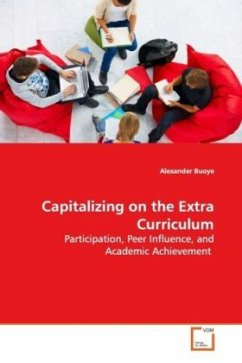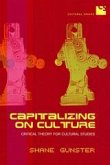Educational policy makers and social researchers
often view the extra curriculum as superfluous or
even contradictory to the academic mission of
schools. However, schools are not merely clinical
factories of learning. The physical plant of each
school houses a living, breathing social system with
all of the requisite parts and functions. The
informal interaction of students with each other, as
reciprocal agents of socialization, has consequences
as tangible as teachers' purposive, didactic
interaction with students. Participation in
extracurricular activities plays an important role in
the emergence and functioning of these social systems a role that has important ramifications for
academic achievement. The findings of this study
should be of interest to students, teachers, coaches,
parents and policy makers, as well as sociologists of
education.
often view the extra curriculum as superfluous or
even contradictory to the academic mission of
schools. However, schools are not merely clinical
factories of learning. The physical plant of each
school houses a living, breathing social system with
all of the requisite parts and functions. The
informal interaction of students with each other, as
reciprocal agents of socialization, has consequences
as tangible as teachers' purposive, didactic
interaction with students. Participation in
extracurricular activities plays an important role in
the emergence and functioning of these social systems a role that has important ramifications for
academic achievement. The findings of this study
should be of interest to students, teachers, coaches,
parents and policy makers, as well as sociologists of
education.








